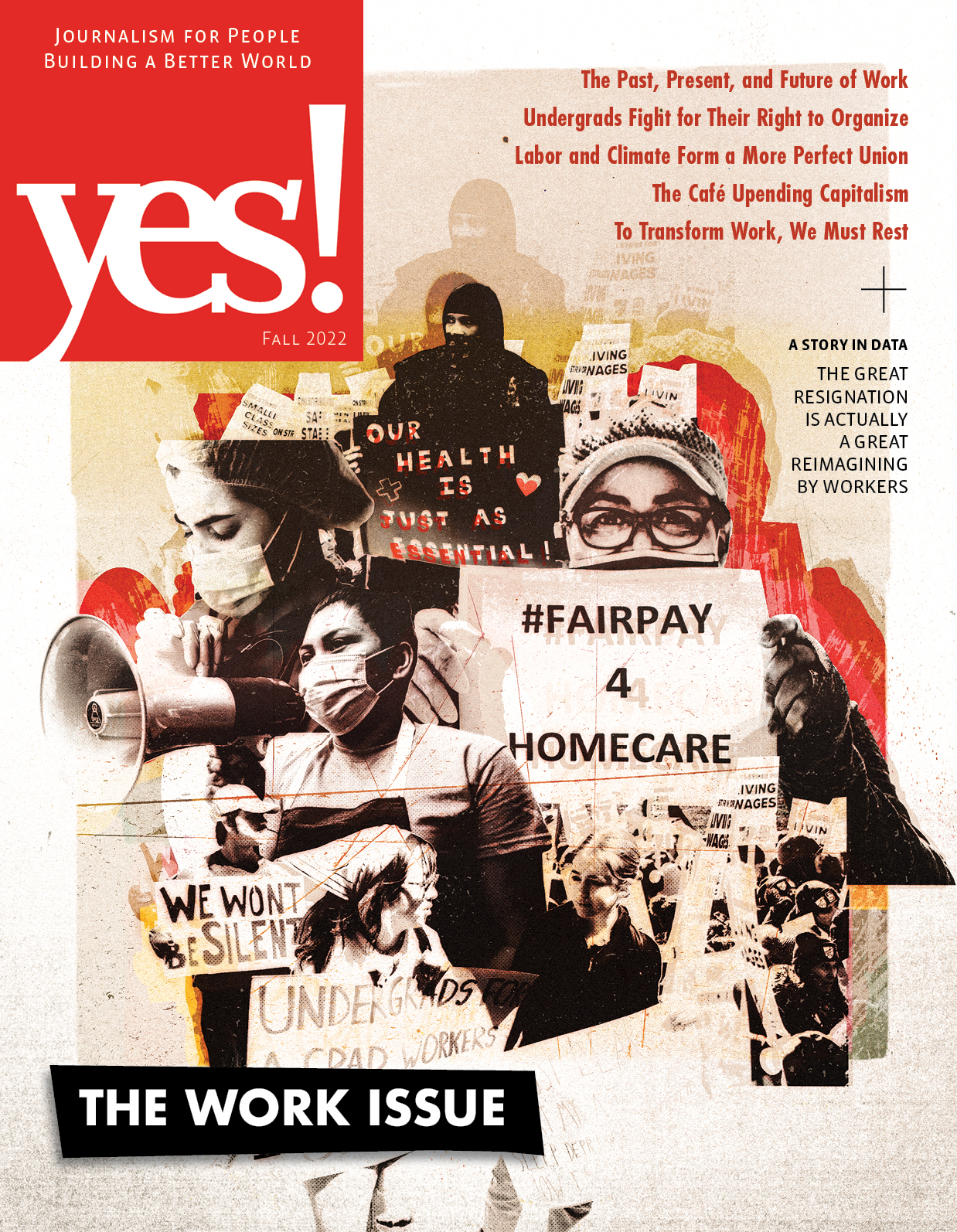Opinion Advocates for ideas and draws conclusions based on the author/producer’s interpretation of facts and data.
America’s Recovery Depends on an Infrastructure of Care

The Biden-Harris administration has taken crucial steps toward addressing the devastating fallout of the pandemic. In a series of relief and recovery packages, the White House and leaders in Congress have made historic investments, from small business supports to commitments to home and community-based services. These policies and proposals have marked a significant shift in recognizing the value of investing in working families, and will no doubt make a difference in the lives of workers, small business owners, and caregivers.
But what we do after these initial proposals is critical.
The Biden-Harris administration and Congress must follow through on their commitments for the people who showed up for our democracy and kept our country afloat. Overwhelmingly, that has been women of color.
And the best way the administration and our elected leaders can thank women of color is by expanding its current care infrastructure investments to be more equitable. They must include permanent, universal paid family and medical leave to relieve the unjust and untenable gap between work and care. The forthcoming American Families Plan and the Building an Economy for Families Act already in Congress offer a prime opportunity to transform praise into meaningful policy, and to make clear that work and family policies are inseparable—and imperative to an equitable and sustainable economic recovery.
Even before the pandemic, most workers in America could not afford to take time off to care for a newborn child or a family member. Increasingly, many women—disproportionately women of color—have had to leave the workforce, losing income, Social Security benefits, and savings to provide care.
These impossible choices have devastating impacts. There’s Tameka Henry in Nevada, whose lost work cost more than $200,000 over a decade, and has to care for her husband, who has a disability, without paid leave. Or Ashley Bostick in Georgia, who lost her job when her first child was born, and had to return to work too soon after her second child was born, while she was still facing health complications. Many workers have been infected or exposed to COVID-19 without the benefit of a single paid day off to quarantine or recover.
The U.S. remains one of the only countries in the world where protections to care for ourselves and loved ones aren’t a given. Only a fraction of workers can use the unpaid leave policy we do have—the Family and Medical Leave Act (FMLA)—because many who qualify cannot afford to lose a paycheck. Black, Latinx and Native American/Alaska Native workers are less likely to be eligible for and able to afford unpaid FMLA leave.
Inadequate work and care support became catastrophic for women of color during COVID-19. They were overrepresented in jobs at high risk for exposure and in sectors with the highest layoff rates, like retail and restaurants. They were on the front lines caring for others, suffering the first, hardest blows of the economic fallout—in jobs far less likely to offer paid leave and other benefits. As a result, a disproportionate number of women of color were forced to step out of the workforce entirely, often because family caregiving responsibilities fell disproportionately on them. Four out of five Black mothers were breadwinners in their households and three out of five Latinx mothers were key contributors to their household income pre-pandemic; then, millions were forced to choose between a paycheck and their families. Now, as of February, Black and Latinx women face significantly higher unemployment rates, at 8.9% and 8.5% respectively, compared to 5.9% for all women.
It’s time to catch up with the global community in enacting a permanent national paid leave policy and other caregiving supports that enable women of color—and all working people—to care for themselves and their loved ones without undermining their financial security.
Research shows that paid leave and child care supports increase women’s labor force participation and bolster economic growth. The care sector is among the fastest-growing in the nation, and our aging population is driving an increasing demand for care workers (we will need an added 1.1 million home care workers by 2028). A robust care infrastructure that includes not only national paid family and medical leave, but universal child care access, long-term supports and services, and livable-wage care jobs with benefits and union access will reap profound economic benefits for women of color—and everyone.
The Biden-Harris administration clearly recognizes the vital role of women of color in our recovery and the profound economic disparities they face. We cannot build back better without ensuring women of color and all working families have the care and support they need to stay healthy and safe. Our nation’s gratitude and affirmation of women of color must be backed by action, and measured by the passage of policies that reflect their needs. We urge members of Congress and the administration to pass permanent paid family and medical leave as part of a larger investment in our nation’s care infrastructure.
|
Angela Glover Blackwell
is the Founder in Residence at PolicyLink.
|
|
Dawn Huckelbridge
is the Director of Paid Leave for All.
|







